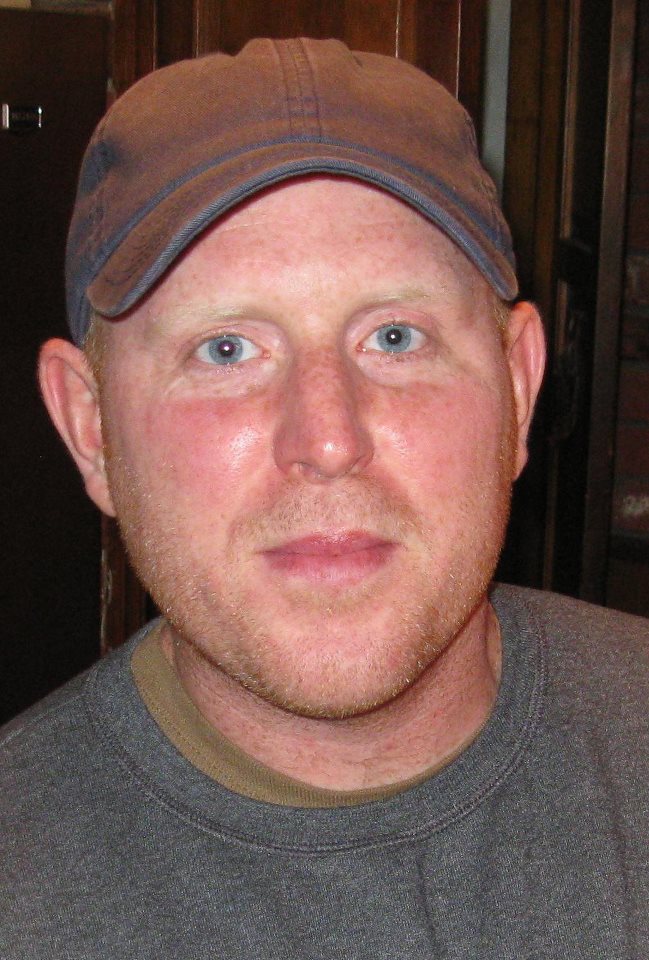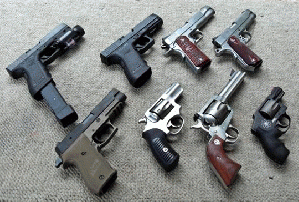Originally published on Huffington Post on 04/15/2013.
The public outcry following the mass shootings in Aurora, Newtown, and Tucson forced lawmakers to develop comprehensive gun control measures designed to prevent future tragedies. Senator Pat Toomey (R-Pa) and Senator Joe Manchin (D-W.VA) have constructed a bipartisan gun control initiative that they hope that their fellow lawmakers will endorse. While mass shootings are terrible, they are not as common as the shootings that occur every day in America's forgotten communities. Since a ban on assault weapons and high capacity magazines have fallen by the wayside , gun control measures should focus on the inner city gun violence that is often overlooked. A good starting point would be to crack down on straw purchases and ban undocumented private sales. The initiative currently being proposed by Senators Toomey and Manchin comes up short in those areas and will likely not serve as a deterrent to inner city gun violence.
by Wikipedia
In 2004, a survey was conducted among those incarcerated for gun-related crimes. Almost 80% of those surveyed stated that they received their firearms through a family member, friend, or street-level (black market) supplier - not at a gun show.
This survey seemed consistent with my own experiences working as a state parole agent, including supervising those who had been convicted of gun crimes. In order to explore this topic in more depth, I conducted my own brief independent study. I interviewed five people who have direct knowledge of inner city gun trafficking. I spoke with a Philadelphia police officer, a Philadelphia police detective, a person convicted of a gun crime, and two others who grew up in areas wherein gun violence was prevalent.
I called the Philadelphia police officer and asked, "How are all these guns getting into the hands of criminals on the street?"
The officer replied:
It's all straw purchases. A criminal gets his girlfriend or an associate without a criminal record to go and buy them a gun. The gun sale is done legally. Then, a week later, the gun buyer will call the police and make a phony claim to the cops that his or her house was burglarized and the gun was stolen. The criminal will use the gun to commit a crime, then ditch it in a place where it becomes available to another criminal, or just hang onto it for his own protection. The gun remains a tool for criminal activity. You can't trace it.
I sent an email to a friend of mine who is a Philadelphia police detective. I asked the same question that I asked the police officer.
The detective replied:
Absolutely straw purchases. There has been some legislation stiffening penalties for straw purchasers, but it's not going to stop the problem. The state attorney general's office has agents assigned to investigate straw purchasers. Most of the agents are retired Philly detectives. They do good job and make a lot of arrest, but it's a drop in the ocean. It's too easy to walk into a gun store, buy a gun (along as you have no criminal record) report it stolen a few weeks later. Criminals use family members or friends who have no criminal record to do this. I'm all for the second amendment, but we need to do more in-depth background checks of persons buying guns. Not just a background check, but perhaps looking into who they associate with. There are street level black market sales, but most of those guns were at some time a straw purchase as well. Also, most gun dealers are pretty cooperative with law enforcement. They will report suspicious behavior to law enforcement. It's just too easy to get a gun in this state. As I said, I'm all for honest law-abiding citizens owning firearms, but there needs to be more checks and balances.
My next call went to my close friend, Joshua "Jocko" Johnson. We met in the 1990s when he worked as an organizing representative for a Philadelphia Teamsters Local with which I was once closely affiliated. Jocko is from Nicetown, an ironically named part of Philadelphia that has historically been a high-crime location. During the 1970s, Jocko was a member of a gang. He endured two bullet wounds: one in the shoulder and one in the thigh. He was convicted of a gun-related crime in the mid-1970s, but after getting a job in the union, he abandoned the criminal lifestyle. He has since left the union, but he remains in a rough part of Philadelphia.
"How are so many guns falling into the hands of criminals?" I asked Jocko. "Where do they get them? How are they so readily available?"
Jocko replied:
When I was growing up in Nicetown, we always used to fight the gangs from the Logan area. They used to break into houses of affluent whites with gun collections, steal their guns, and use them on us. Our area at the time was much rougher, so we made zip guns. We were good at making them, and they worked for us. Nowadays, it's different. In the badlands of Philly, any criminal who wants a gun knows where to go; the term 'legal' never enters their mind. There are too many guns on the street now. In the 1970s, it wasn't as bad, but once the illegal drug game overtook the impoverished communities, drug dealers began to make a lot of money. Once you have money, you can buy guns. Now, there are too many gun sellers in these communities. Criminals are not buying from the gun shows. There are no white boys parking their trucks in the hood and selling guns to people on the streets. There is no need to. There are enough guns on street markets to accommodate buyers. There is no problem with supply and demand. No one cares what is legal, and gun control is irrelevant in this part of the world.
I then called my former employer, Kareem Fisher. He and I worked together in a community corrections center in a rough part of Philadelphia. Kareem is from a section of north Philadelphia that has a moderately high crime rate. He also manages a sizeable number of parole violators on a daily basis, many of whom have been convicted of gun crimes.
I asked him, "How are all these guns landing in the hands of criminals?"
Kareem replied:
It is mainly straw purchases. People who can't get guns know people who are willing to get them guns. It's that simple. To be honest, I wish Philadelphia kept up its 'stop and frisk' policy. If the cops believe a criminal is carrying a weapon, they should stop and check him, it could save a person's life. I'd be willing to deal with some overbearing cops stopping me on the street and checking me for an illegal weapon, so long as they are respectful. I think it would be effective in taking the guns out of the hands of criminals. It would deter a lot of criminals from carrying guns in the first place. As much as I do not want to become the subject of a police 'stop and frisk' procedure, I could deal with it, as long as it proves to be an effective tool in dropping murder rates in Philadelphia, like it did in New York City.
My next conversation was with a high school friend from north Philadelphia who does not wished to be named. He is now a promising entrepreneur, but he took a bullet in the back during our junior year. He has witnessed gun violence firsthand, and he believes that straw purchases are a major factor in inner city gun violence. During our conversation, he did not dwell on his own victimization. Instead, he expressed his sympathy for a 10-year-old named Faheem Thomas-Childs, who was killed in the cross-fire of a north Philly shootout.
(Note: You can view every article as one long page if you sign up as an Advocate Member, or higher).






